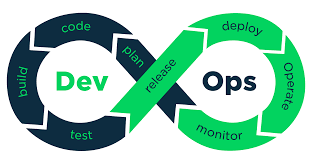Navigating the DevOps Landscape: Your Beginner's Guide to Essential Tools
 Surbhi Paliwal
Surbhi Paliwal
Introduction: Embarking on a journey into the world of DevOps might feel like stepping into a complex realm of acronyms and tech jargon. Fear not! In this blog post, we'll take a friendly stroll through some fundamental DevOps tools that even newcomers and non-techies can grasp. These tools are the backbone of collaborative and efficient software development.
Version Control System (VCS): Git Imagine Git as a time-traveling magic book for your code. It helps developers work together, keep track of changes, and fix mistakes easily. Platforms like GitHub are like libraries where your code books live, and your team can collaborate without stepping on each other's toes.
Continuous Integration (CI): Jenkins Think of Jenkins as your personal assistant that checks your work as you go. It automates the process of putting together your code puzzle, making sure everything fits and works well. This helps catch mistakes early, making your code more reliable.
Configuration Management: Ansible Ansible is like your personal chef in the kitchen. It follows a recipe (playbook) to set up and manage the ingredients (configurations) needed for your application. It makes sure everything is in the right place, making life simpler for both chefs (developers) and servers.
Containerization: Docker Docker is like a lunchbox that holds everything your application needs to run. It keeps your app and its friends (dependencies) together, making sure they behave the same way no matter where they go. It's like packing your lunch in a neat, portable box.
Container Orchestration: Kubernetes Imagine Kubernetes as the conductor of a symphony. It organizes and manages all the musicians (containers) to play in harmony. This ensures your application runs smoothly, whether it's a solo or a full-blown orchestra of containers.
Infrastructure as Code (IaC): Terraform Terraform is your builder tool for the playground (cloud). It understands your blueprint (code) and sets up everything just the way you want. This makes it easy to create and modify your playground without worrying about missing toys (resources).
Monitoring and Logging: Prometheus and Grafana Prometheus is like your health tracker, checking how your application is doing. Grafana turns this data into easy-to-read charts and graphs, so you can see how well your app is running. It's like keeping an eye on your pet's health using a fitness tracker.
Conclusion: These are your friendly companions on the DevOps journey. They simplify complex tasks, enhance collaboration, and keep your development process smooth. As you get comfortable with these tools, you'll find yourself not just working faster but enjoying the process too. Happy learning!
Subscribe to my newsletter
Read articles from Surbhi Paliwal directly inside your inbox. Subscribe to the newsletter, and don't miss out.
Written by
